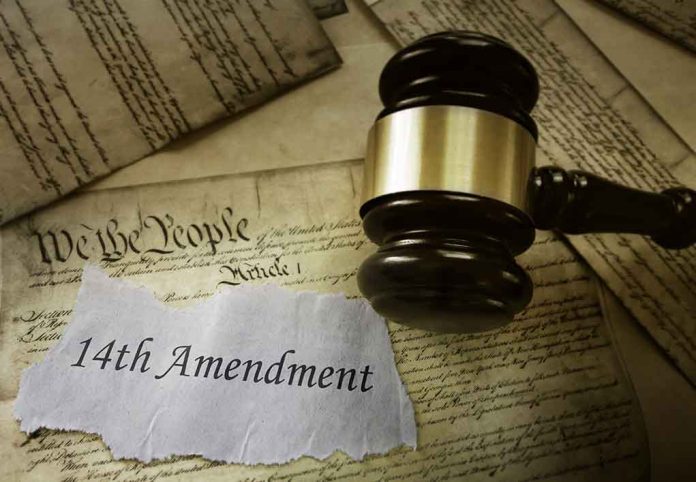
President Trump issues a landmark executive order challenging the longstanding practice of birthright citizenship, invoking a reinterpretation of the Fourteenth Amendment.
Key Takeaways
- President Trump’s executive order challenges the automatic citizenship provision under the Fourteenth Amendment for children of unauthorized immigrants.
- The order forms part of a broader immigration strategy including the suspension of the CBP One app.
- Legal challenges are expected, questioning the President’s authority to reinterpret constitutional provisions.
- The order could significantly affect families and communities, altering the integration of immigrants’ children.
President Trump’s Executive Order
On the first day of his second term, President Donald Trump issued an executive order that targets the practice of automatically granting citizenship to children born in the United States to unauthorized immigrants. This move challenges the interpretation of the Fourteenth Amendment, which has traditionally been understood to confer citizenship to all persons born on U.S. soil, except for children of foreign diplomats.
Trump’s directive forms part of his broader immigration strategy, aiming to enhance screening processes for illegal aliens. His new policy removes automatic birthright citizenship recognition for individuals born under specific parental legal conditions. The executive order specifically prohibits federal departments from issuing citizenship documentation to such individuals.
Historical Context and Constitutional Debate
The Fourteenth Amendment, ratified in 1868, is clear in its language granting citizenship to those born or naturalized in the United States and subject to its jurisdiction. However, the interpretation of the jurisdiction clause has become the focal point of this conflict, with the executive order seeking to redefine its application. According to experts, such an unprecedented move by the President may face significant constitutional challenges, reminiscent of the legal obstacles encountered during the ‘Muslim ban’ controversy in Trump’s first term.
“What we do know is that the president does not have the executive authority to undo the 14th Amendment and birthright citizenship by that level,” argues Marielena Hincapie, immigration visiting scholar at Cornell Law School.
Legal analysts emphasize that modifying the Constitution’s interpretation on such foundational issues typically requires broader legislative or judicial consensus, which presents significant hurdles to the implementation of the new executive order.
Potential Implications and Reactions
Redefining birthright citizenship carries significant implications, with supporters viewing it as a necessary step to reinforce the rule of law and protect national sovereignty. Critics, including immigrant rights groups, warn of potential challenges for communities and the economy, noting projections from the Migration Policy Institute that by 2050, millions of children could be born to parents without legal status under current policies. Opponents argue such changes could complicate the integration of immigrants’ children into American society.
This executive order represents a cornerstone of President Trump’s broader immigration agenda, igniting fierce debate and anticipated legal challenges over its constitutional and ethical foundations. Prominent political leaders, including Florida Governor Ron DeSantis, have expressed support for recalibrating birthright policies, reflecting growing momentum among conservatives to address what they see as vulnerabilities in the current system.





